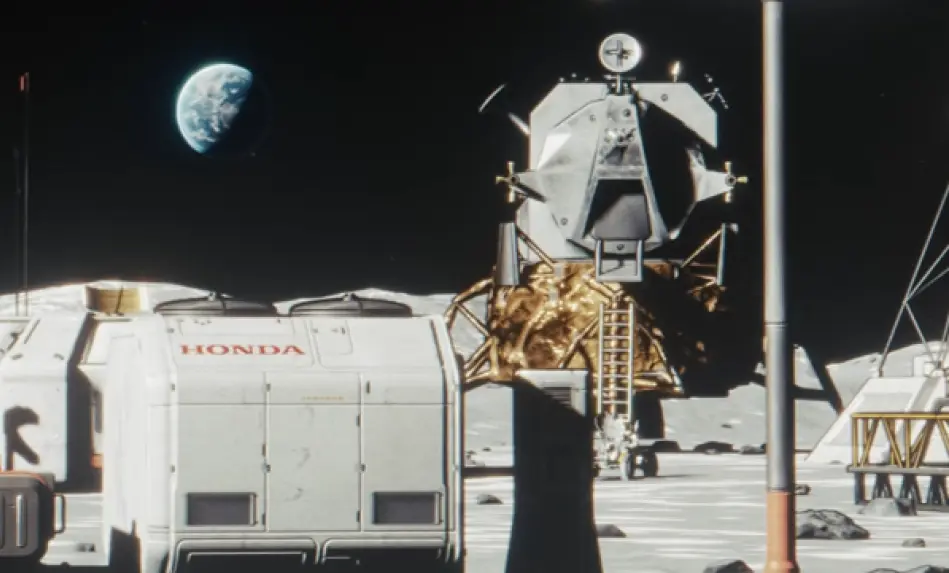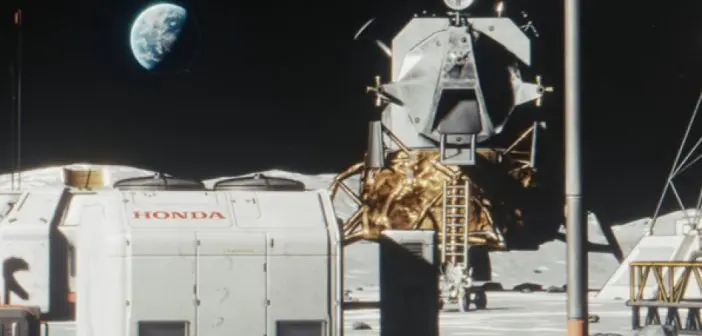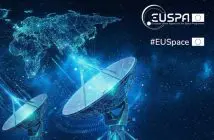
Japan’s Honda is making a renewed push into the space sector. While widely known as a car manufacturer, Honda also makes motorcycles, all-terrain vehicles, power equipment, engines, robots, and aircraft. The company wants to parlay these core technologies into the space sector.
Honda has set up a Space Development Division at its American Honda subsidiary late last year. The US office will work in tandem with Honda’s Japan-based Space Strategy Office.
Honda’s involvement in space dates back to 2019, when it began work on a reusable rocket. At the time, the company wanted to develop a rocket to launch small satellites into low-Earth orbit.
Honda’s space plans have since evolved. It is now working with the Japan Aerospace Exploration Agency (JAXA) to build a renewable energy system on the Moon. The system would break down water into its hydrogen and oxygen components using Honda’s fuel-cell technology and generate electricity. The oxygen could sustain living quarters in space and provide hydrogen-based rocket fuel.
Japan’s Honda plans to test that system on the International Space Station in partnership with closely held US startups Sierra Space Corporation and Tec-Masters.
The company says its new US unit aims to accelerate collaboration with that country’s space companies and agencies, including NASA. Honda also adds that the initiative is “a demonstration of its “commitment to fostering a sustainable future through pioneering technology and collaboration.”
Japan wants private sector to step up
Honda’s foray into space aligns with a push by the Japanese Government and its space agency, JAXA, for the Japanese private sector to play a bigger role in the space sector. Among other things, rival car maker Toyota is investing USD44 million in a local start-up called Instellar Tech to mass-produce lightweight rockets.
Japan’s Ministry of Education, Culture, Sports, Science and Technology, which is ultimately responsible for JAXA and the country’s space strategy, wants the private sector to take responsibility for the building and management of the successor to the current International Space Station (ISS) – a similar stance to that taken by the US Government and its space agency, NASA.
This, and the broader Artemis Mission, opens up opportunities for companies like Honda. Earlier this month, Honda confirmed plans to test its renewable energy system, or, more precisely, a high-differential pressure water electrolysis system onboard the ISS.
Testing will “verify the efficiency and reliability of the system in the microgravity environment of the ISS,” according to Honda press release. Having walked away from its own rocket plans, Honda will rely on Sierra Space to transport the equipment to the ISS using Sierra’s Dream Chaser spaceplane – a bold gambit given the vehicle has remained stalled in test flight stage since 2012. Tec-Masters will be the ISS technology expert.
Japan has big plans to be a player in the space sector and JAXA enjoys a strong international profile. Japan’s space economy is forecasted to be worth USD52 billion by the 2030s. The established research and technology streams at companies like Honda and Toyota are considered core strengths that the country can tap to increase its slice of the global space sector.





